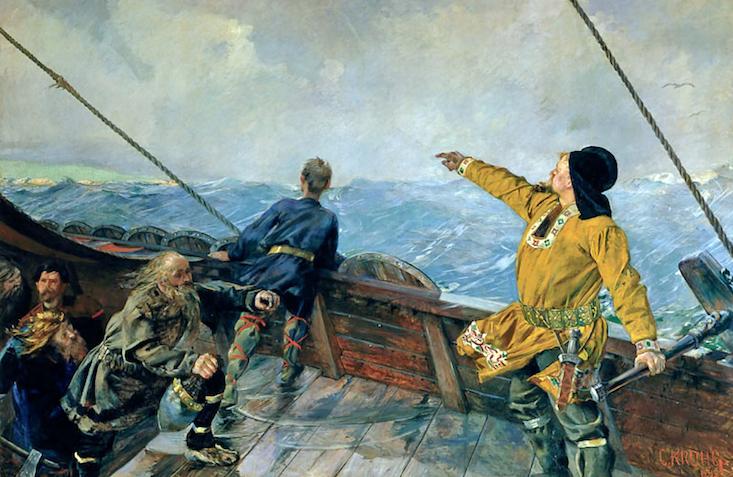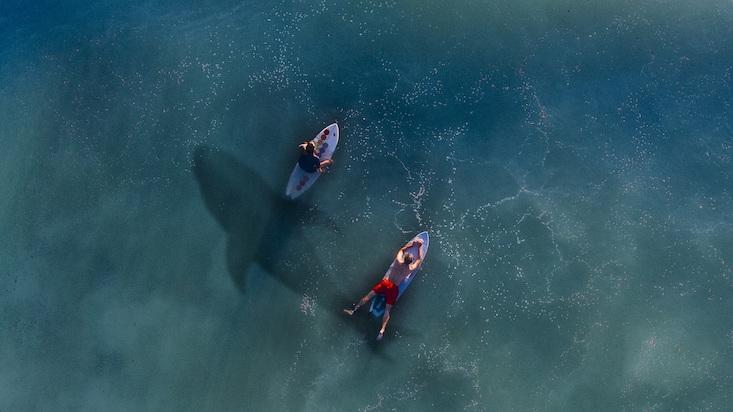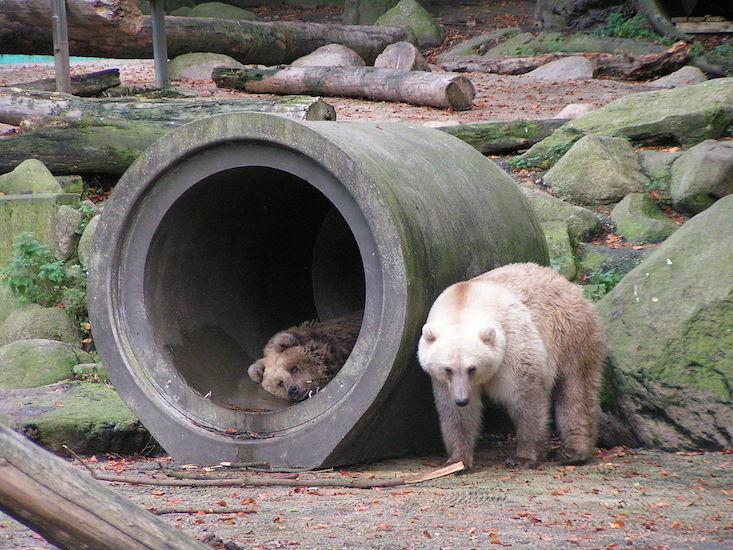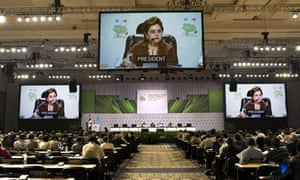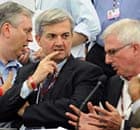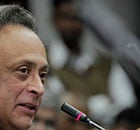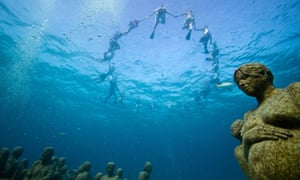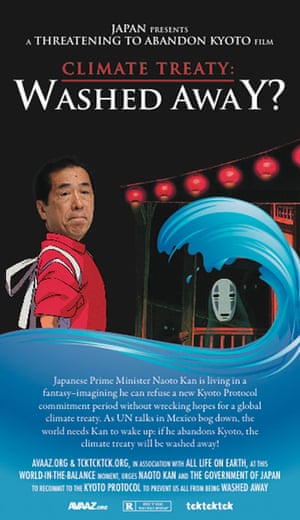https://www.theguardian.com/environment/blog/2010/dec/10/cancun-climate-change-summit-final
Cancún climate change summit: The final day as it happened
All the developments from Friday at the UN talks, as 193 countries tried to make progress on a deal to tackle global warming
Mexican Foreign Secretary, Patricia Espinosa, speaks during the plenary session of the United Nations Climate Change conference (COP16) on December 5, 2010 in Cancun, Mexico. Photograph: Omar Torres/AFP/Getty Images
James Randerson,
Damian Carrington and
Adam Vaughan
Friday 10 December 2010 09.00 GMT First published on Friday 10 December 2010 09.00 GMT
.
09.00am: Two weeks of wrangling over the fate of the world come to a climax today at
the UN climate summit in Cancún, Mexico.
At stake is not just whether billions of people will have "shrinking horizons and smaller futures",
as Ban Ki-moon puts it, but the credibility of the
UN body overseeing the talks.
Unlike
Copenhagen last year, no one is expecting a binding deal at Cancún that will commit countries to cut the carbon emissions responsible for climate change. That much
has been clear since as early as February, and since then everyone from the UN to key countries and NGOs has
been conducting expectation management.
Chris Huhne
But the talks could still produce modest successes on forest protection, the speed and amount of financial aid developed countries give to developing ones to adapt to climate impacts, the transfer of clean technology, and monitoring of countries' efforts to cut greenhouse gases. Or it could end in a procrastinating failure, with key decisions deferred another year, until
Durban in South Africa. Such failure, the energy and climate secretary
Chris Huhne warned yesterday, could result in a vicious downward spiral as countries send increasingly more junior representatives each year:
Next year people will say, well, we're not going to make any progress, and we end up with a zombie conference where there won't be anybody at a senior enough level to take any serious decisions at all
So far, the talks in Cancún have followed a familiar narrative for UN climate talks. Poorer countries
have threatened to walk out over uncompromising negotiating stances taken by rich ones, the Kyoto protocol – the legally binding treaty that compels developed countries to cut emissions by 2012 –
has been at heart of disagreements, and leaked texts have revealed backroom deals (
this time the EU and small island states – last year's was
the controversial 'Danish text'). Plus this year we've had the added spice of cables released by WikiLeaks that show
how the US used its diplomatic muscle to get support for the weak
Copenhagen accord document that emerged this time last year.
Officially, we should hear the outcome of Cancún at midnight (the summit is six hours behind UK time). But judging from the final day at Copenhagen last year, when Barack Obama delayed his flight home for last-minute negotiations, it's likely to go on until the early hours. This live blog will try to keep going until the end result - Damian Carrington will be taking over from me this afternoon.
9.16am: India's environment minister, Jairam Ramesh, has said India may eventually commit to legally binding cuts in emissions. Here's Ramesh, according to
an Indian TV news broadcast this morning that
Reuters is reporting:
Jairam Ramesh, India's environment minister
All countries must make binding commitments in appropriate legal form. This does not mean that India is for a legally binding commitment at this stage. That's our position. There are changing realities that we have to understand. Increasingly, more and more developing countries are asking questions of India, China and the United States, the three big countries saying they will not accept an international legally-binding agreement. I have nuanced our position ... Let's keep this discussion going, let's understand the sentiments of the rest of the world, and let's not be painted as the bad guy.
However tentative the remarks, they're a relatively big deal for India. Previously
it's only talked about voluntary cuts, and even then only cuts in "carbon intensity" - carbon emissions per unit of GDP - meaning in a fast-growing economy such as India, emissions could still continue to rise. An Indian official, speaking to Reuters, confirmed Ramesh's slightly coded words: "What the minister said was that India is willing to open a dialogue on taking binding emission cuts going forward as a means to keep the negotiations meaningful and alive."
9.36am: You'd be forgiven for having missed Cancún over the last fortnight, what with that other
small story about WikiLeaks and
the low expectations for the summit. To get up to speed, I highly recommend
our primer to this year's UN climate conference, which lays out the key players, issues and background. And to get the full back story to the negotiations, which have been going on for years to secure a new international deal to cut carbon emissions, take a look at
our beautiful timeline of the talks.
9.45am: John Vidal's roundup of week one also gives a handy overview on the key areas negotiators and environment ministers need to agree today:
• A deal to cut emissions and prevent a dangerous rise in future temperatures.
• Setting up
a plan to protect forests and keep emissions locked away, while helping developing countries in the process.
• Raising billions of pounds in climate aid to help poor countries adapt to the impacts of climate change.
• Extending the
Kyoto protocol, which is set to expire in 2012.
• Closing loopholes in the text that could see emissions actually rise.
• Improving transparency of countries' carbon cuts – a key US demand, more geekily known as monitoring, reporting and verifying (MRV).
9.54am: This in from Suzanne Goldenberg, our US correspondent who is on the ground at Cancún, who says the final hours of the summit have started to "bring out leaders' dramatic flair."
Suzanne Goldenberg
Mexico's president, Felipe Calderon, compared the negotiations to an airplane disaster movie. At an event yesterday he said:
"Sometimes I think we fail to understand that we're all passengers in the same vessel, in the same aircraft, or the same vehicle. Our aircraft has now seen the disappearance of the pilot. Something happened in the cabin. And all the passengers are responsible for the aircraft, and we're squabbling about these matters. Whether the guilt lies with those in the tourist class or those sitting up front in first class and the plane continues to go down. It's as if we were in a truck on a winding road and the driver has had a heart attack, and we're all on the edge of hitting a tree, going over into a ravine, squabbling again. I think, friends, somebody has to take control of the aircraft or put on the brakes."
10.20am: Not a great start to the final day of the talks. Last night Russia said no to an extension of the Kyoto protocol, which developing countries are adamant is crucial for agreement on other aspects of a climate deal. Canada is also understood to oppose the extension.
The pair join Japan, which last week cast a negative shadow over the talks
by announcing it would not back an extension of the treaty that was created in its former capital. The protocol, which binds rich countries to cut their emissions, is due to expire in 2012. Japan has since hardened its position, with one of its ambassadors
telling John Vidal this week:
We are not moving. This is a fact. Many people have had the illusion that Japan might change its position. Well, we are sorry, but we are not going to. There is 0% possibility
We'll have the full story for you in a few minutes, courtesy of Suzanne Goldenberg.
Nnimmo Bassey. Photograph: Romel De Vera/FoEI/EPA
... when rich countries are finally being asked to recognise this through taking strong action to cut their emissions, they are using Africans as a mouthpiece to help them wriggle out of it. What they should do is clear: commit unconditionally to an extension of the Kyoto protocol, cut their emissions by at least 40% by 2020 (without carbon offsetting), and provide more money for developing countries to tackle the problem.
10.42am: Nnimmo Bassey, the African chair of
Friends of the Earth International, has written
an interesting comment piece for us on Africa's role in the talks. One of his main complaints is that some leaders of the continent -
which is expected to suffer some of the worst effects of rising temperatures, particularly on food supplies - are being used to promote the agenda of developed countries. He singles out the prime ministers of Kenya and Ethiopia:
10.50am: Australia-based youth climate activist and student
Tim Hall, who is at Cancún, emails me with a plea to the officials and ministers who will be waking up in a couple of hours for today's crunch negotiations. It's written on behalf of the generation who will be affected by many of the predicted impacts of global warming:
It is now the final day and negotiations are still in a deadlock. You still haven't agreed on steps to fight climate change. The 'balanced package' of a fund to oversee climate aid, ways to slow deforestation, steps to help poor countries adapt to climate change and a mechanism to share clean technologies, remains unfinished.
You have had sixteen years of this negotiating. You've had twelve months to ensure progress was made here at COP16.
Yet you still bicker and delay, you still lose sight of the big issue. It seems it's the small things which create the biggest differences. You still can't compromise.
If you can't agree on these things, what hope is there for us at all?
A little heads-up: we've got a great blog on upcoming youth climate activists coming in the next hour.
11.03am: Here's
the news on Russia's opposition to extending the Kyoto protocol.
Russia's climate change envoy, Alexander Berditsky, said:
Russia will not participate in the second commitment period of the Kyoto protocol... Russia has repeatedly stated, including at the highest political level, that the adoption of commitments for the second commitment period under the Kyoto protocol as it stands now would be neither scientifically, economically or politically effective.
Looks like we can expect opposition (Russia, Japan, Canada) and support (most developing countries, potentially EU) for the Kyoto protocol to become a pivotal stumbling block today. But will countries compromise, as executive secretary of the UN climate secretariat Christiana Figueres
has repeatedly asked them too?
If you find your national position is in opposition to that of others, don't ask for compromise, think of our common planet and offer the compromise first. The deal here in Cancún will not guarantee all your short-term national interests, but reaching no outcome here in Cancún will endanger everyone's long-term well-being
11.17am: My colleagues on the Guardian's
global development site have
just published a blogpost on 'energy apartheid', or the fact that over a billion people still don't even have electricity - let alone worry about whether it's green or dirty, the issue that Cancún is interested in. It's by Drew Corbyn, from the charity
Practical Action:
Some find the link between energy access and climate change a source of tension, arguing that it is foolhardy, given that the world is hurtling towards dangerously high levels of carbon in the atmosphere, to encourage nearly half the world's population to use more energy. This position is short-sighted and unjust. Meeting the basic energy needs of all the world's people would contribute less than 2% to current global emissions. People living in poverty should not be deprived of the opportunity to improve their lives because of the developed world's historical profligacy.
Greenpeace and tcktcktck activists, perform in Cancun, Mexico. Photograph: J under watason Taylor/Greenpeace/EPA
11.36am: To get a flavour of what it's been like at Cancún, check out
our gallery of week two.
It has everything from activists' protests and photo stunts - including this particularly spectacular underwater one - to life inside the halls of the Moon Palace hotel and Cancunmesse, where the negotiations are taking place.
12.18pm: It was clearly a late night for many in Cancún last night.
Negotiators were reportedly working into the early hours and activists such as Change and Switch's
Linh Do were still tweeting at 1am, Cancún-time. But while we wait for the Mexican resort to wake up in the next hour, here in the UK Greenpeace's Joss Garman is an upbeat mood, despite the developments overnight:
Joss Garman
Not so gloomy bout #COP16 as many. If Japan can agree to allow Kyoto issue to be resolved later, there's other key areas for agreement now
12.24pm: Just seen this on Twitter.
Christian Aid says it's staging a protest at the Japanese embassy in London at 1pm, presumably as a reaction to its hardline stance on not extending the Kyoto protocol:
12.53pm: Early-rising delegates at the Cancún conference will be waking up now, and preparing for a day that officially closes around midnight (6pm in Cancún). Sceptical types will likely take that with a pinch of salt, despite Mexican president Felipe Calderon saying it will finish on time. Last year in Copenhagen,
the feverish last-minute wrangling went on until 12.58am the following day, amid a swirl of rumours and impromptu press briefings.
Those final hours also featured a star cast of world leaders, including Obama, Merkel, Lula da Silva and Brown. This year is quite a different deal -
Chris Huhne specifically asked David Cameron not to go. Here's a list of the world leaders in Cancún that I'm aware of:
• Jacob Zuma, South Africa
• Evo Morales, Bolivia
• Felipe Calderon, Mexico
• Bharrat Jagdeo, Guyana
• Jens Stoltenberg, Norway
• Doris Leuthard, Switzerland
• Meles Zenawi, Ethiopia
• Raila Odinga, Kenya
(let me know if I've missed any - I'm pretty sure I'm missing several, and am struggling to find a single source at the UN that lists those attending)
We cannot wait any longer naively expecting the UN process to lead selfish states to an agreement. It is now time to look for an alternative solution. If no global agreement can currently be reached, Europe should take the initiative and pursue a regional agreement.
While political and media attention has fixed on glitzy summits like Copenhagen and Cancun, an existing EU agreement that could provide the solution gathers dust. The Cotonou Agreement was signed in 2000 between the African, Caribbean and Pacific (ACP) group of 79 states and the European Union (EU) for economical, social and environmental cooperation. It provides a framework through which development policy is deployed. It contains an environmental aspect and it could be extended.
...The agreement could be a model for a global agreement and reassert the EU's leadership role at global negotiations.
1.16pm: So if Cancún does end in a deadlock - and that's still a very big if - what happens next?
Professor Ludwig Krämer, an environmental law expert who works at ClientEarth, has emailed me his idea for an alternative to the current UN process:
1.47pm: John Vidal, one of our two correspondents in Cancún, has woken up and recalled yesterday's late night events over the phone to me:
John Vidal
[Bolivian president] Evo Morales stole the show with the most theatrical press conference, which included Mayan priests, admirals, indigenous peoples, advisers and anyone else he could think of. It was followed by a rally in downtown Cancun, which featured brass bands, music and denunciations of the American empire and the whole approach of the west to cutting carbon emissions using carbon markets and offsets. "If we send the Kyoto protocol to the rubbish bin, we are responsible for ecocide and genocide, because we will be sending many people to their deaths," said Morales.
1.59pm: Some light relief on YouTube that sums up the Groundhog Day feeling some close followers of the climate talks might be experiencing, courtesy of the still-surprising-popular
Xtranormal 'text-to-film' service:
Facebook Twitter Pinterest
(hat-tip to
Alex Randall)
2.13pm: Guest blogger Sylvia Rowley has written
an inspiring post for us today on upcoming youth climate activists. There are no
Tamsin Omonds,
Ben Stewarts or
Leila Deens - these are the next generation of names to watch. They're a diverse bunch. Here's Naomi Ralph, a 25 year-old climate justice campaigner:
Environmental problems are not just a white, middle-class, liberal concern
And Isabel Bottoms, a 21 year-old co-founder of UNfairplay:
It sounds boring [doing admin to help poor countries at UN climate negotiations], and in all honesty it is pretty boring, except it happens to be essential.
2.19pm: While we wait for things to get moving in Cancún, here's PricewaterhouseCoopers' take on what would be a 'good outcome' today:
There is optimism in Cancun that an agreement will be reached on fast-start funding, despite attempts by some countries to link this to other, more difficult, issues such as MRV and technology transfer. For some that will be progress since Copenhagen, but for many the reality is that this will simply release funds pledged a year ago. That in itself is important given the frustration that little has been dispersed [in funding]. - Jon Williams, PwC
And Oxfam's:
It is essential that a new fair Climate Fund be established at Cancun, with at least 50 per cent of climate funds allocated for adaptation needs. Women must be at the heart of the Fund so that the money is delivered to them and other groups affected most by the impacts of climate change.
2.23pm: There's
a webcast due to start in 10 minutes at the conference - watch this space for any interesting developments.
2.45pm: Okay, so that opening meeting has been postponed for another 50 minutes. In the meantime, the Canadian member of the Adopt a Negotiator site has just posted
this forceful blogpost about deferring action (see also the YouTube video further down this live blog):
Cancún should not be a stepping stone! This year's conference in Cancún should be doing what Copenhagen was supposed to do last year: establish a fair, ambitious, and legally binding agreement. Short-sighted politics, disconnected from climate science, disconnected from those whose lives will be affected by climate change (read: all of us), and disconnected from principles of justice or equity, are driving these negotiations, and driving those who are happy to call Cancún a stepping stone. Let's just say that those who are willing to step on Cancún likely won't hesitate to step on a lot more.
3.02pm: Here's some good video footage of yesterday's speeches by ministers at the summit, including Japan on its Kyoto protocol stance, Saudi Arabia's oil minister saying the outcome must not affect petroleum products (no big surprise there), as well as statements from Russia, Spain, Canada and more.
Australia's climate minister explicitly drew the link between today's result and the future of the UN talks:
it is imperative for the credibiltity of this process [at the UNFCCC negotiations] that we are able to make progress here at this conference.
Todd Stern, the US lead negotiator, had little to offer beyond promises that America would continue to work towards domestic policies to cut emissions. But prospects don't look too bright there - after the US mid-term elections, our US correspondent Suzanne Goldenberg
wrote that Obama's green agenda had been "crushed" due to the presence of several new Republican members of Congress who deny the existence of man-made climate change.
3.23pm: John Ashe, who is chairing talks on the future of the Kyoto protocol,
tells Reuters it is "hard to say" whether there will be progress today, despite last minute efforts by Mexico:
At least there's confidence that she [Mexican foreign minister Patricia Espinosa] could put something for them [governments] to consider. This was not the case in Copenhagen. If there's one thing that we've learned in Cancun is that trust has been restored
Overall, the mood music coming out of Cancún is pretty hard to interpret. The general consensus, put forward by Chris Huhne yesterday, seems to be that they're on a knife-edge and could go either way, though
Russia's unequivocal statement last night opposing an extension of the Kyoto protocol has certainly cast a cloud on today's talks.
3.50pm: Mexico's foreign minister and president of the summit, Patricia Espinosa, has just delayed her 8.30am (Cancún-time) conference a second time, and it's now scheduled for 11am (i.e. 5pm here in the UK). None of this bodes particularly well for the assurances that this wouldn't be a summit that went down to the wire... and then kept on going into the early hours.
3.54pm: Here's an amusing - but related - diversion from the talks. This press release, purportedly from Koch Industries
which is infamous for allegedly donating millions of pounds to climate sceptics, has just landed in my inbox:
KOCH INDUSTRIES ANNOUNCES NEW ENVIRONMENTAL COMMITMENTS
WICHITA, Kan. – Koch Industries remains committed to environmental responsibility and stewardship, announcing today that it will restructure its support for organizations that undertake climate change research and advocacy.
Since its founding, Koch Industries has been focused on achieving environmental excellence and using resources efficiently. Through extensive and award-winning efforts and investments, Koch Industries has implemented innovative practices that reduce energy use and greenhouse gas emissions in the manufacture and distribution of our products.
Based on recent internal evaluations of Koch Industries priorities, the company will be restructuring its support of climate change research and advocacy initiatives and will discontinue contributions to groups whose positions on climate change no longer match those of the company's leadership, beginning in January 2011.
This has hoaxsters
The Yes Men written all over it, I think, not least in the tell-tale fake domain name given for the press officer at the bottom. What do you think?
4.20pm: James Randerson, our science and environment news editor, writes:
Before the talks are even over, Japan is already being cast as the villain of Cancun (much in the same way that China was seen by some as the wrecker of Copenhagen - a position that had some truth to it but was far from the whole story).
TckTckTck has produced a spoof movie poster (see below) that parodies the animated film Spirited away . It proclaims: "Japan present a threatening to abandon Kyoto film Climate treaty: Washed away?"
Meanwhile, environmental campaigner Joss Garman speculates about dire diplomatic consequences for Japan if it does not soften its position in
a piece by the BBC's Richard Black:
"It may be possible that if Japan keeps blocking the progress of these climate talks, and if they're seen to be undermining the UN process, it could start to threaten their hopes for a permanent seat on the UN Security Council."
I have no idea whether that is true or not, but despite the diplomatic pressure being thrown at Japan at the moment they show no sign of changing their position. It is interesting though that Japan has been singled out rather than others opposed to moving on with Kyoto such
as Russia, Canada and Turkey.
Spoof movie poster, inspired from Spirited away, and starring Japan Prime minister Naoto Kan issued by Avaaz.org & Tcktcktck.org to protest against Japan refusing to inscribe its emission targets under the Kyoto Protocol. Photograph: Tcktcktck.org
You can hear a discussion of Japan's emphatic announcement in the first week of the conference
on our Cancún podcast. That panel includes Michael Jacobs, former special adviser to Gordon Brown on climate change, and senior research fellow at the Grantham Research Institute on Climate Change and the Environment at the London School of Economics and Rob Bailey, Oxfam's climate change adviser.
4.36pm: Development campaigners at the
World Development Movement are not too impressed by progress at Cancún. The UK-based NGO's Julian Oram emails to say:
Despite the urgent threat of climate change is urgent, rich countries have continued to engage in playground politics at these international negotiations. Countries which dare to dissent from flawed approaches to reducing emissions, such as carbon markets or tree plantation offsets, are excluded, marginalised and vilified. It's also worrying that civil society groups here as official observers to hold governments to account are increasingly finding it harder to access the meetings spaces, or even to raise objections around un-transparent and undemocratic processes.
It remains to be seen if the next few hours will improve Oram's view of the process.
4.38pm: John Vidal has just been briefed by the UK energy and climate secretary Chris Huhne on his view of where the talks are at. Huhne is particularly well placed to give oversight, as he's been tasked by the Mexican president of the talks to build bridges on one of the key areas of disagreement - whether or not to extend the Kyoto protocol. We'll have a story shortly.
5.04pm: Our correspondent John Vidal emails with some good news:
John Vidal
If you're into peat, cheer. After four long years negotiation, the draft Kyoto protocol text on wetlands is out and, amazingly for campaigners, it will allow countries to reduce their emissions from degraded peatlands under the Kyoto protocol by rewetting them.
This is a huge step forward, and hats off to Iceland and Belarus. It's good news for Britain too, because Scotland has extensive degraded peatlands. The main beneficiary will be Indonesia, one of the biggest carbon emitters in the world because of its deforestation, which has dried out thousands of square miles of peat for its oil palm plantations.
But don't jump for joy too soon! It's a voluntary measure, which means there will be no compulsion on countries to rewet their peatlands, and it depends on the final package of agreements made here. Because it comes under both the
LULUCF (a wacky acronym for land use change and forestry, which only about eight people in the world understand,) and
Redd (reduced emissions from deforestaion and deghradation) negotiations, if either of these fall in the final negotiations later today, all could be lost. But this is the first good news in these talks.
5.08pm: From our US environment correspondent Suzanne Goldenberg on, respectively, email and Twitter:
It's worth noting that the most positive comment the EU could muster in their briefing just now was "Everybody is still on speaking terms" (
Joke Schauvliege).
5.23pm:
We really do not have more time
So says the president for the conference, Mexican foreign minister Patricia Espinosa. Things are starting to move in Cancún. The texts that could (or could not) form the basis of a deal are expected in roughly three hours' time - so expect the 'big reveal' around 8pm UK-time and 2pm Cancún-time. John Vidal and Suzanne Goldenberg will be on hand to pick up reaction, and we'll scoop that onto the live blog here.
5.27pm: Damian Carrington, our head of environment, will be taking over the live blog shortly. He's getting his head round the state of play now and wrestling with why Russia is anti-Kyoto:
I'm puzzled by
Russia's refusal to sign up to another round of Kyoto protocol commitments. Why? Because Russia, along with other ex-Soviet states, are sitting on a goldmine of
"hot air" carbon credits.
The Kyoto baseline year is 1990, when the Soviet Union's heavy industry was belching out vast clouds of greenhouse gases. When the state collapsed, so did the industry, meaning Russia et al were way under their Kyoto targets, and so have tens of billions of dollars of spare permits.
Russia said last night that another round under the existing Kyoto protocol "would be neither scientifically, economically or politically effective".
Scientifically, they are right, as the cuts would not be enough to keep warming to under 2C, as the world's governments have pledged. Politically, they are also right: Kyoto excludes the big emerging economies of China, Brazil and India, and the US and
Japan, won't accept that.
But economically? It's true that trading all the Soviet hot air permits would be a waste of money – but is Russia really offering up the billions it can lay claim to? Ideas very welcome
by Twitter or in the comments.
5.36pm: James Randerson has been watching the EU press conference. As I wrote in my first update this morning, it's clear that the credibility of the UN process is very much on the line here, no matter how low expectations are:
Guardian science correspondent James Randerson
Firstly, they were not giving much away on the details of the negotiations but made clear that all aspects of the negotiations are still on the table - nothing is locked down. When asked about progress on verification of carbon emissions reductions (something that the US believes is essential but China, for example, has resisted) Schuvliege said, "I think everybody is still on speaking terms in smaller groups...I think it's not wise here and now to go into details to say what is really the problem."
On Japan and
Russia's position, that
they will not move to a second commitment period of the Kyoto protocol, Schauvliege said that there had been a lot of contact between the EU and both delegations last night. She said that both are arguing, "Kyoto as such is not enough. There must be more...I hope they want to compromise like we want to do."
Hedegaard added, "We had a very frank exchange of views with Japan," which is of course diplomatic speak for a stand up blazing row. Echoing
comments from Chris Huhne about the prospect of a "zombie conference", she said that the entire UN process is now at stake if there is not some kind of result from Cancún.
"Everyone who believes that we should have an international process...must also realise that if we do not get things done here in Cancun then its hard to see how we will get from A to B," said Hedegaard. "I think that everybody realises what's at stake including the two countries that you mentioned." She even raise the prospect of the talks turning into the so-called "Doha round" of international trade talks that have achieved virtually nothing despite zeppelins full of diplomatic hot air.
The Alliance of Small Island States have suggested putting a time limit for a deal of Durban in South Africa next year. "Our wish has been to get the legally binding deal in South Africa," said Hedegaard, adding that whether that is possible depends on how much progress the negotiators make tonight. But she pointedly did not endorse the notion
of a time-limit.
5.48pm: Here is
an early evening summary:
•
Russia has said it will not renew its commitment to the Kyoto protocol. The country's climate change envoy, Alexander Berditsky, said: "Russia will not participate in the second commitment period of the Kyoto protocol." (see 11.03am).
•
The talks look certain to run on late into the night - and probably early hours of tomorrow - despite earlier assurances that they would finish around midnight UK-time. A state-of-play opening statement by Mexican foreign minister Patricia Espinosa was repeatedly delayed, who is now telling the media "We really do not have more time." (see 5.23pm and 3.50pm)
•
With hopes poised on a knife-edge, Chris Huhne says that the credibility of the UN process is at stake, and warns against the talks generating a "zombie conference" in South Africa next year. "Next year people will say, well, we're not going to make any progress, and we end up with a zombie conference where there won't be anybody at a senior enough level to take any serious decisions at all," he said. (see 9am, 4.38pm and 5.36pm)
That's it from me for today. I'll hand you over now to the capable hands of our head of environment, Damian Carrington, who will be doing his level best to keep blogging until the outcome of Cancún becomes clear.
6.06pm: @jossgarman tweets me with an explanation for the Russian stance against another Kyoto round (see 5.27pm). It's
because they want to hang on to their hot air credits. Other European countries don't want them to - so Russia is saying, OK we'll bring the whole thing down.
6.14pm: John Vidal, our environment editor and in Cancun, has just been speaking to the UK's climate change secretary Chris Huhne, on the prospect for a deal tonight.
Read the full blog here, but here's a key quote. John says to remember Huhne is a glass-half-full type of guy:
Everything could come unravelled but I got the impression that we have found a potential way through, and with political will, it could work. There's still all to play for. We're in a much better position at this stage than we were in Copenhagen. But there is nothing to stop one or more countries having a hissy fit and throwing their toys out of the pram.
6.54pm: If you missed
Suzanne Goldenberg's startling blog yesterday, you missed an excruciating demonstration of how hard getting agreements on climate is. The prime minister of Norway and the president of Guyana were on stage, apparently to extol the virtues of the deal they had agreed in which Norway paid Guyana to stop deforestation. Bharrat Jagdeo, Guyana's president, hadn't read the script:
It's a nightmare. It is a test of the sincerity of the developed world, and the delivery on development assistance has been abysmal. We have not seen a single cent.
7.05pm: The latest from our environment editor John Vidal in Cancun:
The 34 least developed countries, the 50-plus in the Africa group, as well as the 27 small island states and the Alba countries of Latin America – basically the poor world outside India and China – are positioning themselves in a series of moving and passionate statements in case there is a bust up later.
Bruno Sekoli of Lesotho, chair of the Least developed countries (ldcs) talks for them all: "The obective of these talks is to mitigate climate change and help developing countries adapt. The situation in these talks is extremely disappointing. Concentrations of greenhouse gases have risen at alarming rates and its worrying to think of the situation in just 10 years time. Most ldcs are already fighting for survival. The situation is worsening by the day.
"We have the Kyoto protocol on the table. It remains the only document on the table. Any attempt to do away with it would be a disaster. Our message to the rich governments is this: I appeal to developed countries to do what is right. They have shown economic, even military leadership. They must now show climate leadership."
7.15pm: Another live update from Cancun, this time on the
Kyoto problem dogging the talks, from our environment correspondent Suzanne Goldenberg:
Suzanne Goldenberg
Brazil's chief climate negotiator Luiz Figueiredo has just done a walk-by of the press with a relatively sunny view of efforts to find a way around the showdown over the future of the Kyoto protocol. When the summit chair, Mexico's Patricia Espinosa, was pairing up countries and dividing up work topics at the beginning of this week Britain and Brazil got Kyoto.
Figuerido said he believes progress has been made in working groups to draft a text that will extend Kyoto and ensure there is no gap when the first commitment period ends at the end of 2012.
"I am optimistic that we are going to get to an adequate solution," he said. It's not immediately clear when the talks took place or which countries were in the room. Of the Kyoto refusniks, Japan and Russia were there but not Canada. Other so-called Basic countries, China, India and South Africa were there. So were Bolivia and Venezuela. Figuerido suggested their presence means that the solution could fly.
"I am confident due to the number of countries involved in producing the text including these with very strong opinions," he said.
But the people that were in the room are not necessarily those with the power to approve such deals. There are reports this morning that Japanese negotiators had also come around to proposed solution on the Kyoto problem late on Thursday - only to pull back after instructions from Tokyo.
7.21pm: Live update from Cancun on the negotiations over how the money promised in Copenhagen by rich nations will be delivered, from our environment editor John Vidal:
My mole in the finance talks tells me that countries have reached broad agreement on setting up a
Climate Fund. It would come under the UN, will be set up in a year, and negotiations are going on over who is on the board. From being a low 3 out of ten on the optimism scale for the talks this morning, he is now at 4.5.
7.32pm: Here is one – much needed – tiny ray of light, says our environment correspondent in Cancun, Suzanne Goldenberg. It comes from dark soils of peatlands, which store vast amounts of carbon but have been
vulnerable to destruction:
Suzanne Goldenberg
Campaigners say negotiators have produced a
draft agreement to include peatlands in forest protection or REDD programmes.
That's a breakthrough for those who have been working to get the international community to focus on peatlands. The effort got a boost in making their case on Wednesday when the billionaire financier George Soros told a side event he was very concerned about emissions produced by destruction of peat in Indonesia.
He noted that millions of acres of peat land in rain forest had been cleared out in the 1990s with the intention of growing rice. But Soros, who is investing in conservation projects in Indonesia, said he had seen a recent shift in policy with the authorities imposing a temporary two-year ban on cutting peatlands.
He said the move had required a total change in thinking about forests and natural resources. "Forests were treated earlier like a gold mine or like oil. It was mining basically and now it has to be preservation."
7.45pm: Bill McKibben, founder of the
350.org campaign and influential environmentalist has just emailed a statement from Cancun. It is a useful reminder of the gap between even the best possible deal on offer and what the science says is needed to prevent dangerous global warming:
These talks enter their final hours shrouded in a fog of unreality - the biggest and most powerful nations on earth simply aren't paying attention to physics and chemistry.
Which is why we'll continue to have unprecedented strings of disasters. And it's also why the grassroots movement to demand real action will continue to mushroom.
We're not big enough yet to beat the fossil fuel industry and its allies, but we're gaining. And if the most vulnerable nations will stand with civil society and ignore
the bullying and buyoffs from the US, the movement will grow faster still.
8.20pm: A new development from our environment editor John Vidal in Cancun, which could be read as a sign of hope or of desperation:
Both the UN and the US have cancelled their press conferences. This usually means that things are going wrong, big time. Or possibly that things are going well but they don't want to share the news (ha ha!). Or, most likely here, they are all so tired that they can't wake up the officials.
Meanwhile
Nnimmo Bassey, the chair of Friends of the Earth International, is saying that the talks may now be officially extended a full 24 hours. So in theory we could all be here until midnight Saturday (UK time) and beyond.
I've also bumped into Hermantha Withanage, a Sri lankan environmental scientist, who says the politicians need to wake up to the reality of what is happening at the grassroots. "The solutions are in the hands of local people but people in these negotiating rooms are not listening to them. They are struggling to keep their politics while most people are struggling to survive. No one will excuse the negotiators and the Annex 1 [rich] countries if they try to kill Kyoto", he says.
On a lighter note, the British delegation offices are about a kilometre from the negotiating halls - though only 50 yards from the turquoise Caribbean - but the negotiating team has taken to bikes which they whizz around on, striking fear into walkers. And no, Reuters pics prove there are
no ministerial cars following them with boxes of papers.
8.32pm: More suggestions that the climate talks are going into overtime
9.15pm: The climate talks really are going into overtime, says our environment editor John Vidal in Cancun:
We'd better dig in for a long night. I've just heard from the most reliable source that the final plenary session of the 193 countries will now not start till around midnight Cancun time. That's 6am in UK.
If that is so, then the earliest any decision will come is likely to be after lunch on Saturday in Britain, or even later because countries tend to take a very long time to debate this complex stuff. When the Mexican chair of the talks said she was confident that the talks would conclude by 6.30pm, she may well have been right. Shame no-one thought to ask her which day!
9.20pm: And here's
our take for the first edition of the paper tomorrow. The way things are going it may not be far off being right (ie talks
still on a knife edge).
The future of international climate diplomacy was put into jeopardy today as the UN global warming conference at Cancún entered its final hours with no resolution to the divide between rich and poor countries. "We have very limited time to make a last push," warned Mexico's foreign minister, Patricia Espinosa. "No party can lose sight of what is at stake."
On what should have been the final hours of two weeks of negotiations, Connie Hedegaard, the European Union's climate change commissioner, warned that the UN process was at risk of becoming a never-ending set of meetings unless they reach a positive outcome at Cancún.
"Everyone must realise that if we don't get things done here in Cancún, it's very difficult to see how you go from A to B," she said. "If we leave Cancún without getting anything out of this, I think multilateralism has a problem."
After two weeks of talks, despite an all-night bargaining session, ministers had managed by mid-morning on the final day to agree on just one paragraph of text.
Read the rest of the story here.
9.44pm: This just in from Reuters, on the latest version of the negotiating text:
UN climate talks on Friday produced a new text that hinted at compromise over an impasse on emissions targets between rich and poor nations, which could unlock a modest deal on climate funds.
The text reflected "the current status of the negotiations," said a note from the Mexican hosts of the 192-nation talks in Cancun in its preamble.
The draft referred to a "second commitment period" of the Kyoto Protocol, the extension of which beyond its first 2008-2012 round has been a central roadblock in the two-week talks.
It said that it "agrees ... to ensure that there is no gap between the first and second commitment periods."
The Kyoto protocol is the only existing legally binding treaty, but only demands cuts in greenhouse gas emissions from rich, industrialised nations.
9.51pm: The global diplomatic offensive launched by the US to get as many nations as possible to back the Copenhagen Accord reached as far as the Vatican, according to a
diplomatic cable released by WikiLeaks tonight. From the cable:
[Vatican diplomat] Conversi's offer to support the U.S., even if discreetly, is significant because the Vatican is often reluctant to appear to compromise its independence and moral authority by associating itself with particular lobbying efforts. Even more important than the Vatican's lobbying assistance, however, is the influence the Pope's guidance can have on public opinion in countries with large Catholic majorities and beyond.
I wrote a full account of the
US tactics revealed in the leaked cables last week.
10.04pm:
10.08pm:
10.11pm: More on the new negotiating text from our environment editor John Vidal in Cancun:
The draft text for the one of the two UN negotiating strands is now out: the Kyoto Protocol strand, which excludes the US. But we will have to wait for the parallel strand, the Long-term Cooperative Action strand.
The good news is that the KP text specifically mentions that a 25-40% cut is needed in greenhouse gas emissions by 2020, compared to 1990. Plus it refers to the "gigatonne gap", the 2bn tonnes of CO2 missing between the ambition to keep temperature rises to 2C and the pledges nations have made so far. People here are enthusiastic:
"If this gets approved we are far further than we thought coming into Cancun," says Greenpeace international climate policy director Wendel Trio. "It mentions the gigatonne gap and the process needed to review the pledges later, and it urges countries to make deeper cuts. It's very positive. We knew that the pledges were not going to change but we needed recognition that more work is needed. At the moment the level of ambition of pledges is 11-16%, so 25-40% would double this. If this reflects the ambition in the LCA text, then we have a party. Its not what we want, but given the politics here this is OK."
The billion dollar question is whether this text will be knocked down in the final plenary session of the summit here in Cancun. The most likely suspects would be
Canada, Russia, or Japan, who don't want a second commitment period for Kyoto.
What we do not know, and won't for many hours, is whether deals have already been done. It could sail through or it could fall - but so far it lives.
10.47pm: A quick aside from my colleague James Randerson on an interesting scientific spat. It centres on
a paper by Dr Andrew Dessler at Texas A&M University from Science today. It is about whether, on average, clouds increase or decrease warming.
The paper has been attacked by
Dr Roy Spencer, a scientist who is sceptical about anthropogenic global warming (and also happens to be a
proponent of intelligent design).
The two have an interesting but technical disagreement that sometime when it is not so late I'd like to think about more carefully. But leaving aside the content of the science for now,
Spencer makes one outrageous
claim:
Dessler's paper is being announced on probably THE best day for it to support the IPCC's COP-16 meeting here in Cancun, and whatever agreement is announced tomorrow in the way of international climate policy. I suspect – but have no proof of it – that Dessler was under pressure to get this paper published to blunt the negative impact our work has had on the IPCC's efforts.
He seems to be suggesting that Dessler decided the publication timing for political ends. As any scientist will tell you, it is hard enough getting journals to publish in the year of their choosing, let alone on a particular
day.
Dessler has responded to the critique of the science and the conspiracy charge
on RealClimate:
I can assure everyone that no one pressured me in any aspect of the publication of this paper. As Dr. Spencer knows well, authors have no control over when a paper ultimately gets published.
And as far as my interest in influencing the policy debate goes, I'll just say that I'm in College Station this week, while Dr. Spencer is in Cancun. In fact, Dr. Spencer had a press conference in Cancun — about my paper. I didn't have a press conference [anywhere] about my paper. Draw your own conclusion.
11.19pm: Here's more on the Kyoto issue from Cancun, from our environment correspondent Suzanne Goldenberg:
Suzanne Goldenberg
A European proposal to resolve the extremely difficult question of the future of the Kyoto Protocol would extend simply extend the current phase of the treaty for two years beyond its end date of 2012. But how would that actually work?
That's not at all clear, even to the experts. There is no mention of such an extension in the most recent draft text. Some have suggested the fix could be done through a "gentleman's agreement" not to raise objections over Kyoto.
The main thing consideration though is to patch together a solution now and avoid a collapse in Cancun. "It's looking for a way to kick the can down the road and give them more time to work out the things that are not right," Jennifer Haverkamp of the Environmental Defence Fund tells me.
11.20pm: While we're waiting for the other (LCA) draft negotiating text to appear - and a possible statement from hosts Mexico - my colleague James Randerson has a quick plug for the
Guardian's
Ultimate Climate FAQ:
Guardian science correspondent James Randerson
The plan is to build up a set of clear, accurate and balanced answers to all the questions that our readers have ever asked themselves about climate change.
The initial aim is for the Guardian team, with the help of various partners and, crucially, our millions of readers, to produce online the world's best user-friendly guide to all aspects of climate change, from the science to the politics, economics and more. We will be partnering with expert organisations and individuals to inform the project, and are pleased to announce the first of those is the Met Office, which will be offering scientific advice.
We launched the first answer today - the question "
What exactly is the climate?"
Please submit your questions here.
11.44pm:
11.55pm: The second draft negotiation text is out: the Long-term Cooperative Action strand, which includes the US and runs alongside the Kyoto Protocol-based strand (see 10.11pm below). Oxfam have sent me their response, from their international climate change policy adviser Tim Gore:
This breathes new life into the talks, tackling the Kyoto conundrum and setting up a Climate Fund. Progress in the mitigation package would provide confidence to developing countries that richer nations are serious about a second commitment period. Emission cuts pledged under the Copenhagen Accord could also be set as a minimum.
However, more needs to be done to address long-term finance for the Climate Fund and while there is reference to funding both adaptation and mitigation this is only a first step in addressing balance between the two. It is very disappointing that any reference of gender has been dropped.
More soon.
12.01am:
12.20am: John Vidal, our environment editor in Cancun, gives an instant assessment of the new negotiating text from the Long-term Cooperative Action strand, which includes the US and runs alongside the Kyoto Protocol-based strand:
The LCA text, the parallel negotiating text to the Kyoto text, is at last out. It's long and detailed but immediate impressions suggest ambition has not entirely vanished.
It has references to a long-term goal of holding temperatures to 2C and a future review of whether the target should be revised to 1.5C, which is as good as it was going to get. But any reference to a legally-binding instrument that might follow the Kyoto Protocol in 2012 is out.
Good points include, as I predicted on this blog a few hours ago, are that agreement has been reached on a new Climate Fund, to be administered by the UN not the World Bank. The details are interesting: it will have 25 members of developing countries on its board, compared to only 15 for developed countries. This gives developing countries a much stronger role. The World Bank is a trustee.
On cutting emissions, the numbers that countries pledged in the Copehagen Accord now go into the final text (though they are way short of keeping temperature rise to 2C). And on the controversial issue of the monitoring and verification of countries' actions, the developing countries have mountains to climb: there are pages and pages of text about what they will be expected to do. But there is next to no reference to how the US will be inspected, or by whom.
Global goals for emissions cuts and proposed peak emissions years are pushed down the road to next year.
12.29am: Patricia Espinosa, Mexico's foreign minister and the president of this summit, has just made a brief announcement on the release of the two draft texts (see below). Our correspondent, Suzanne Goldenberg, was there:
Suzanne Goldenberg
She has congratulated negotiators for making "remarkable progress" but also reminded them that the world will have to live with the decisions that lie ahead.
She gave the delegations two hours to review the drafts, and then reconvene in the series of plenary sessions that will – eventually – produce a concrete outcome of one kind or another at Cancun. But nobody expects the real work to get going much before midnight, local time.
12.50am: Right, that's it for now, but we'll be back later this morning UK time to let you know what's been happening through the night in Cancun.
The final note has been a positive one, with the two key draft negotiating texts (see below) winning a standing ovation for the summit president, Patricia Espinosa who is Mexico's foreign secretary, and positive reactions from quite a few of those at COP16 (see below).
There's a long way to go to get agreement on a final text which solves key issues of finance, Kyoto, verification and more. And the measures in the texts will need to be strengthened in future to really tackle global warming. But bright moments have been pretty rare in climate change summits over the last few years, so here it is, via YouTube:
Facebook Twitter Pinterest
8.54am:
Guardian science correspondent James Randerson
Good morning all.
James Randerson taking over the baton with the latest from the UN climate talks in Cancun.
A quick update:
Two draft negotiating texts (one on the Kyoto Protocol and one on the Long-term Cooperative Action (LCA) strand - the bit that includes the US) were presented around 9 hours ago, or around 6pm in Cancun.
Since then delegates have had time to digest what is in those documents and no doubt engage in some back-stage arm twisting. I just spoke to Guardian environment editor John Vidal. He tells me that the mood at the talks is cautiously optimistic that there will be some kind of agreement, but there are plenty of spanners that could be about to be lobbied into the works.
The resumption of the plenary session had bee scheduled for 00.30 Cancun time, but it was later put back by 3 hours - presumably to allow for more arm twisting.
8.59am:
Patricia Espinosa, Mexico's foreign secretary and chair of the talks has just reopened the plenary session. She said, "tonight we will make some historic decisions". She gave a brief summary of what will happen. First the ad-hoc working group on the Kyoto Protocol will report, then the ad-hoc working group of the Long-term Cooperative Action (LCA) strand. Then there will be statements from the floor.
Then - maybe - they will make a deal.
Bolivia's Pablo Solon has been expressing his country's reservations with the Kyoto Protocol text to the meeting.
9.13am:
9.15am:
Espinosa, the chair of the talks, has gavelled through the Kyoto text, over Bolivia's objection to rapturous applause from the floor.
9.18am:
This is great drama. You can
watch it live here - although at the moment proceedings are in Spanish and there is no translation.
9.21am:
Espinosa is now inviting the full meeting to adopt the LCA text and make it part of the "Cancun agreement" - "A new era of international cooperation on climate change".
Bolivia now has the floor and is objecting.
9.25am:
Bolivia appears to be conducting diplomacy/negotiations by tweet.
9.26am:
9.29am:
Todd Stern, the US negotiator, has just intervened to suggest that the meeting adopts procedures that are "closer to general agreement than consensus". In other words - "we should ignore what Bolivia is saying".
9.33am:
Espinosa: "The decision is thereby adopted."
Standing ovation and cheers around the hall.
9.36am:
Bolivia is extremely unhappy.
9.39am:
9.41am:
Guardian US Environment correspondent Suzanne Goldenberg is tweeting from the Conference hall. Mexican President Calderon is addressing the meeting.
9.44am:
Calderon has praised the negotiators for restoring hope in multilateralism. Also, Friends of the Earth UK has been in touch via twitter.
9.47am:
Calderon, the Mexican president, is still addressing the meeting.
9.52am:
Bolivia is objecting on twitter to some of the triumphalism of the International Youth Climate Movement. "
An agreement that allows a 4 degree increase is no victory for the vast majority of humanity"
Here's the response from
@IYCM
10.01am:
Suzanne Goldenberg has pointed out this disturbing video of a man who is reportedly a Reuters photographer being roughed up by UN guards on a bus. It is not clear why (via
@democracynow twitter feed). More on that later if we get it.
Facebook Twitter Pinterest
10.10am:
The negotiator from Bangladesh is addressing the plenary:
He praised the Mexican presidency of the talks for having "restored the faith of all the parties" and hailed the Cancun agreement as a "great compromise". But he said the Least Developed Countries have made "great sacrifices on the altar of United Nations cooperation".
But he ended on a note of urgency. "We simply can't wait because hundreds of millions of people...are suffering day in day out and they can't wait."
Norway's lead negotiator praised Patricia Espinosa, Mexico's foreign secretary and chair of the talks in the plenary, "You have got more praise tonight than most human beings will get in a lifetime."
10.47am:
We are moving our live coverage of the talks to a
new blog today. Please follow reaction to the Cancun accord there.
Topics
View all comments >
